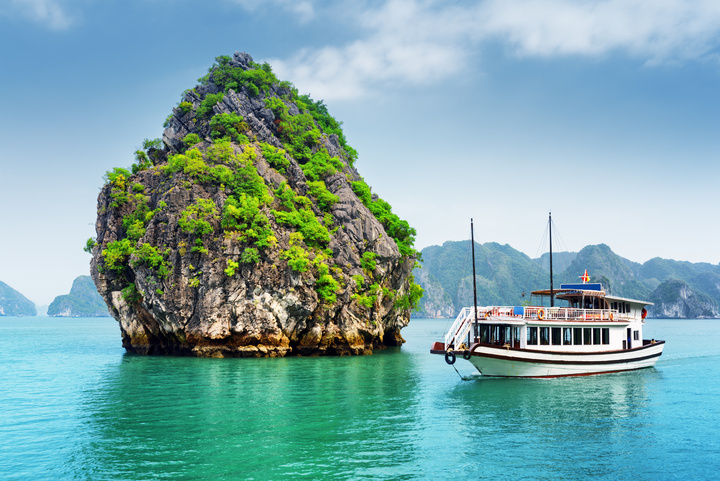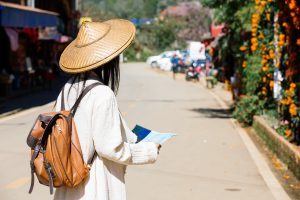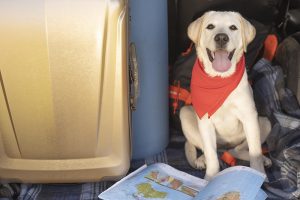Safety Tips for Backpackers in Southeast Asia

Backpackers navigating a busy street in Southeast Asia, taking safety precautions on their journey.
Safety tips for backpackers in Southeast Asia are essential for anyone planning an adventure in this vibrant region. While Southeast Asia is known for its stunning landscapes, rich culture, and welcoming locals, there are certain precautions every backpacker should take to ensure a safe and enjoyable journey. Whether you’re traveling to Thailand, Vietnam, Cambodia, or Indonesia, being prepared for potential challenges is key to avoiding mishaps.
1. Do Your Research Before You Go
Before packing your bags and heading to Southeast Asia, take some time to learn about the specific countries you’ll be visiting. Although the region is mostly safe, there can be areas affected by political instability, health risks, or natural disasters. Check government travel advisories and make sure you’re informed about any potential risks. That way, you can avoid unpleasant surprises.
2. Keep Your Belongings Close and Secure
Southeast Asia’s bustling cities and tourist spots are ripe for petty theft, especially in crowded areas. Keep your belongings close and secure. Consider using a backpack with anti-theft features, like hidden zippers or lockable compartments. If you’re traveling with valuables like a camera or laptop, use a money belt or neck pouch to keep them close to your body.
Also, be aware of your surroundings—sometimes pickpockets will try to distract you while they snatch your stuff, so stay vigilant, especially in markets, bus stations, and tourist hubs.
3. Choose Safe and Reliable Transportation
Getting around Southeast Asia is usually cheap, but not all forms of transport are created equal. Use trusted services when possible. For example, when you’re in a city, opt for reliable ride-sharing apps like Grab instead of getting into a random taxi or tuk-tuk.
If you’re renting a scooter, always wear a helmet, and ensure you’re comfortable riding in local traffic, which can sometimes be chaotic. Accidents are not uncommon, so take care and follow all local traffic rules.
4. Prioritize Your Health and Hygiene
Food and waterborne illnesses are not uncommon in Southeast Asia, so take some simple steps to avoid getting sick:
- Stick to bottled or purified water, and avoid drinking tap water.
- When eating at street food stalls, look for vendors with a lot of local customers—this usually means they have a good reputation for cleanliness.
- Always carry hand sanitizer, especially if you’re visiting places without easy access to clean bathrooms.
If you’re planning to hike or explore jungles, make sure you’re prepared for potential mosquito bites and other tropical diseases. Consult your doctor before you go to check if you need any vaccinations or preventative medications.
5. Stay Alert for Scams
While the locals in Southeast Asia are generally welcoming and friendly, there are a few common scams to watch out for:
- Be careful when agreeing to prices for goods or services, especially with taxis, tuk-tuks, or street vendors. It’s always a good idea to agree on a price before you get in the vehicle or order something.
- Watch out for “too-good-to-be-true” tour offers or deals that seem overly cheap—they may not be legitimate.
- Don’t fall for overly friendly strangers who offer to take you to “special” shops or restaurants in exchange for a commission.
Take the time to read up on the scams in each country you visit, so you know what to look out for.
6. Get Travel Insurance
Travel insurance might seem like an unnecessary expense, but it can be a lifesaver. Whether you’re getting sick, losing your luggage, or needing to cancel your trip last minute, having travel insurance gives you peace of mind. Some travel insurance plans even cover adventurous activities like hiking, scuba diving, or motorbiking, which are common among backpackers. Just make sure your plan covers emergency medical costs, trip cancellations, and lost belongings.

7. Be Respectful of Local Culture
Southeast Asia is home to many diverse cultures and religions. Respecting local customs is essential for maintaining good relations with the locals and avoiding any unintended offenses. Here are a few things to keep in mind:
- When visiting temples or religious sites, dress modestly. In many places, this means covering your shoulders and knees.
- Avoid public displays of affection, especially in more conservative areas.
- Always ask before taking photos of people, particularly in rural areas where locals might find it intrusive.
By showing respect, you’ll have a much more rewarding and positive experience.
8. Have Important Information Easily Accessible
Emergencies happen, and when they do, it’s important to have quick access to key contact details. Write down the emergency numbers in each country (police, medical, fire), as well as your embassy’s contact information. Always keep a backup of your passport, insurance details, and important documents on your phone or in the cloud, just in case.
9. Trust Your Gut Instincts
If something doesn’t feel right, trust your instincts and remove yourself from the situation. Southeast Asia is generally safe, but if you feel uncomfortable or unsafe, don’t hesitate to walk away. Avoid isolated areas, especially at night, and stay aware of your surroundings. There’s no harm in erring on the side of caution.
10. Be Prepared for the Weather
Southeast Asia’s tropical climate can be intense—hot and humid during the day, with sudden rain showers that can catch you off guard. Pack lightweight clothing that breathes and dries quickly, and always carry an umbrella or light rain jacket just in case. The rainy season varies by country, so check the weather forecast and plan your outdoor activities accordingly.
Conclusion: Make the Most of Your Southeast Asian Adventure
Backpacking through Southeast Asia is an amazing experience filled with unforgettable moments. By following these safety tips for backpackers in Southeast Asia, you’ll ensure that your travels remain as enjoyable as possible. With a little bit of preparation, common sense, and respect for local cultures, you’ll have the freedom to explore, learn, and grow—without any unnecessary worries. Enjoy every moment of your trip and make sure to stay safe along the way!





